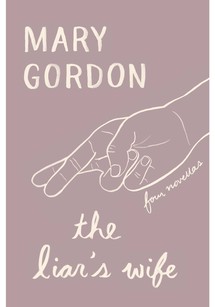The Liar's Wife
By Mary Gordon
304 pages;
Pantheon
We must prefer real hell to an imaginary paradise," opined Simone Weil, the philosopher and mystic who fasted (and ultimately died) in solidarity with her compatriots living in Nazi-occupied Europe. In The Liar's Wife, a pitch-perfect new work of fiction, Mary Gordon infuses Weil's ardent, conflicted spirit into four stories that are models of compression and searing insight.
"Thomas Mann in Gary, Indiana," a nonagenarian's reminiscence of a teenage encounter with the legendary writer, exposes the toxic prejudices behind a Midwestern community's immaculate facade. "Fine Arts" narrates a budding art historian's adventures in Italy as she rebounds from a disastrous love affair. In the title novella, when an elderly married woman crosses paths with her first husband, a roguish Irish musician she hasn't seen in 50 years, her carefully constructed view of herself threatens to come undone. And in the affecting "Simone Weil in New York," the famous French auteur kindles a fraught friendship with Genevieve, a former student and now the mother of a young son.
Gordon's voice is wry, her prose velvety: "Sometimes a warm breeze skittered along the surface of the skin like a flame along pavement, a match dropped onto a thin, invisible stream of gasoline." Deftly, she knits a tight skein of themes: the cultural chasm between America and Europe, the mind's battles with the body, the silence that laps at the fringes of relationships. Jocelyn, the protagonist of the title novella, remembers a year she lived in Dublin: "The women selling fruit and vegetables shouting in voices coarse and aggressive, then, when you bought, suddenly maternal, tender...possibly breaking, for no reason she could tell, into song, and breaking the song off for no reason." The Liar's Wife beautifully dramatizes the disquieting ambivalences that haunt the inner lives of women.
"At the bottom of the heart of every human being, from earliest infancy until the tomb, there is something that goes on indomitably expecting...that good and not evil will be done to him. It is this above all that is sacred in every human being." —from a 1943 essay appearing in Simone Weil: An Anthology
— Hamilton Cain


